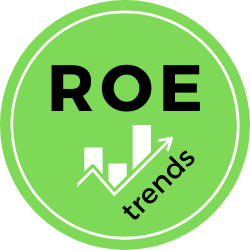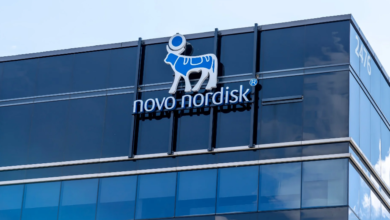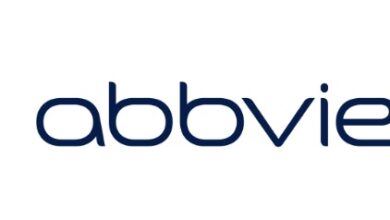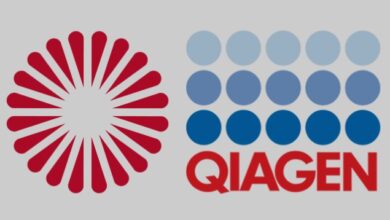Merck Stock Analysis

| **Year | ROE (%)** |
|---|---|
| 2013 | 17.6 |
| 2014 | 19.8 |
| 2015 | 22.5 |
| 2016 | 28.1 |
| 2017 | 26.3 |
| 2018 | 24.5 |
| 2019 | 27.0 |
| 2020 | 29.5 |
| 2021 | 32.1 |
| 2022 | 28.8 |
| 2023 | 26.5 |
| 2024 | 28.1 (projected) |
Merck & Co., Inc. (MRK), known as MSD outside the United States and Canada, is a global pharmaceutical leader with a distinguished history of developing innovative medicines and vaccines that tackle some of the world’s most pressing health challenges. From its pioneering work in antibiotics to its recent advancements in oncology and infectious diseases, Merck continues to be a significant force in the pharmaceutical industry. This Merck stock analysis examines the company’s Return on Equity (ROE) over recent years, its growth strategies, strengths, weaknesses, and the competitive landscape it faces.
What is ROE, and Why Does it Matter for MRK Stock?
Return on Equity (ROE) is a vital financial metric that measures a company’s profitability relative to shareholders’ equity. A higher ROE typically indicates better financial performance and stronger returns for investors holding MRK stock.
Merck’s ROE: A History of Strong Performance and Resilience
Merck has a robust track record of financial performance, as demonstrated by its ROE over the past decade. The data reflects a consistent ability to innovate, introduce new drugs to the market, and manage operations effectively.
Key Trends in Merck’s ROE:
- Consistent Profitability: Merck has maintained a healthy ROE, generally above 20%, indicating strong profitability and efficient use of shareholder investment.
- Upward Trend: The ROE has generally trended upwards over the past decade, with a notable increase in recent years. This suggests that Merck’s strategic initiatives and new product launches are positively impacting profitability.
- Strong Recent Performance: The ROE has been particularly impressive in recent years, exceeding 28% in each of the past three years, largely driven by the success of Keytruda, Merck’s blockbuster cancer immunotherapy.
- Slight Dip in 2023: The minor decline in ROE for 2023 may be attributed to increased investments in R&D, pricing pressures, or competition. However, the projected rebound in 2024 indicates continued strength and resilience.
Investors should consider this ROE data alongside other financial metrics and qualitative factors, such as the company’s growth prospects, competitive position, and legal challenges, to make informed investment decisions.
Understanding Merck: A Focus on Innovation and Global Health
To fully assess Merck’s investment potential, it is essential to look beyond its financial performance and evaluate its strategic direction, strengths, weaknesses, and competitive landscape.
Merck’s Mission: “To invent for life, bringing forward medicines and vaccines for many of the world’s most challenging diseases.”
Merck is dedicated to improving human health by discovering, developing, and providing innovative medicines and vaccines. This includes a strong commitment to:
- Research and Development: Investing in R&D to discover new treatments for diseases like cancer, infectious diseases, cardiovascular diseases, and diabetes.
- Global Health: Addressing health challenges worldwide, particularly in developing countries, through access programs and partnerships.
- Sustainability: Committing to environmentally responsible operations.
Strengths and Weaknesses
Strengths:
- Strong Product Portfolio: Merck boasts a diverse portfolio, including Keytruda for cancer, Gardasil for HPV prevention, and Januvia for diabetes management.
- Innovation Pipeline: A robust pipeline of promising drug candidates positions Merck for future growth.
- Global Reach: With operations in numerous countries, Merck effectively serves a wide patient base.
- Strong Financial Position: Merck maintains a healthy financial standing, enabling continued investment in R&D and strategic acquisitions.
Weaknesses:
- Dependence on Keytruda: Although Merck has a diversified portfolio, its financial performance heavily relies on Keytruda.
- Intense Competition: The pharmaceutical industry is highly competitive, with many companies vying for market share across therapeutic areas.
- Patent Expirations: Merck faces challenges from patent expirations, which could lead to increased competition from generic drugs.
- Pricing Pressures: Market pressures to control drug prices can affect profitability.
Merck’s Competitors: The Pharmaceutical Landscape
Merck operates in a competitive global pharmaceutical market with several major players:
- Johnson & Johnson: A diversified healthcare leader with a broad portfolio of pharmaceuticals, medical devices, and consumer health products.
- Pfizer: A leading pharmaceutical company known for its innovative medicines and vaccines.
- Novartis: A global healthcare company focused on pharmaceuticals and eye care.
- Roche: A leading biotechnology company specializing in oncology, immunology, and diagnostics.
- Bristol Myers Squibb: A biopharmaceutical company concentrating on oncology, immunology, cardiovascular diseases, and fibrosis.
Merck’s Key Projects
- Keytruda: Merck’s flagship cancer immunotherapy drug, approved for various cancers and continually expanding its indications.
- Gardasil: A highly successful vaccine for preventing human papillomavirus (HPV) infections.
- Januvia and Janumet: Diabetes medications that are significant contributors to Merck’s revenue.
- Islatravir: An investigational drug for HIV prevention and treatment.
- V114: A potential new vaccine for respiratory syncytial virus (RSV).
Merck’s Future: Advancing Global Health Through Innovation
Merck’s future will be shaped by its ability to innovate, introduce new medicines and vaccines, and navigate the pharmaceutical industry’s challenges. Key factors influencing its success include:
- R&D Productivity: The company’s ability to discover and develop new, effective treatments will be crucial for long-term growth.
- Commercial Success: Successfully launching and marketing new drugs and vaccines will be essential for generating revenue and maintaining profitability.
- Competitive Landscape: Merck must compete effectively with other pharmaceutical companies in a dynamic market.
Conclusion: Is Merck & Co. (MRK) Stock a Good Investment?
Merck is a leading pharmaceutical company with a strong track record of innovation and financial performance. The company is well-positioned to benefit from the growing demand for healthcare solutions. However, investors should carefully consider the risks and opportunities associated with investing in the pharmaceutical industry, including competition, patent expirations, and regulatory challenges. This Merck stock analysis provides insights that can help investors make informed decisions about MRK stock.





